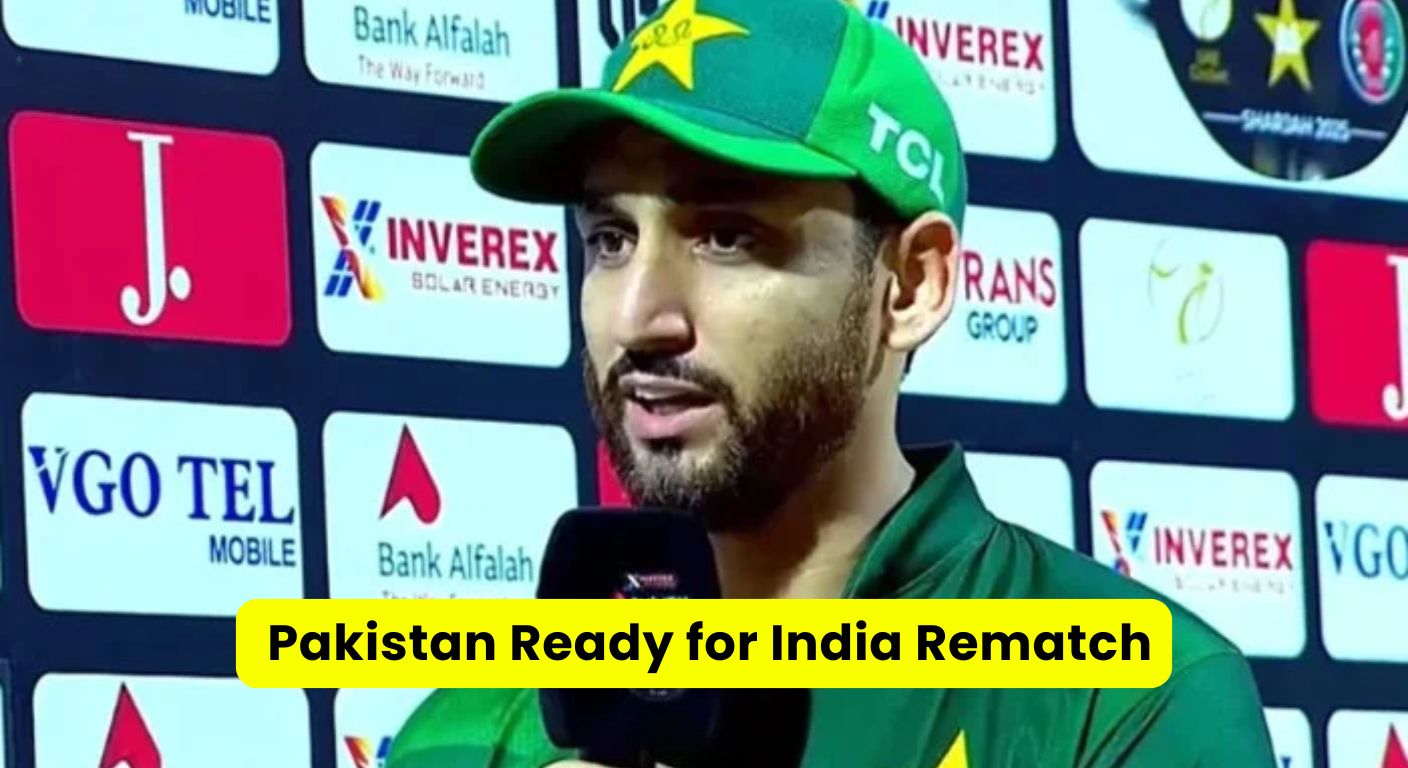Asia Cup 2025: Pakistan Ready for India Rematch, Says Captain Salman Agha

Sharjah, August 30, 2025 – Pakistan T20I captain Salman Ali Agha has declared that his team is fully prepared to face India in the Super Fours stage of the Asia Cup 2025. His statement came after Pakistan defeated the United Arab Emirates (UAE) by 41 runs in their final Group A clash at the Sharjah Cricket Stadium.
Focus Shifts to India Rematch
Pakistan and India last met in the group stage earlier this week, in a match that ended with high tension both on and off the field. The encounter not only saw India cruise to a seven-wicket victory, but also sparked controversy after the Indian side refused to shake hands with the Pakistani players.
With the two teams set to face each other again on Sunday, Salman Agha assured fans that his squad is motivated and confident.
“We’re fully prepared for any challenge,” Salman said after the match.
“We just want to play good cricket. If we continue playing like we have in recent months, I believe we can compete with any side, including India.”
Pakistan’s Performance Against UAE
Against UAE, Pakistan’s batting lineup showed mixed results. Fakhar Zaman stood out with a half-century, scoring 50 runs, but the top order struggled once again. Young opener Saim Ayub was dismissed for his third consecutive duck in the tournament, raising concerns about his form.
Salman admitted the batting needed improvement, especially in the middle order.
“We finished the task, but mid-overs batting is still an issue. This is an area where we have to work harder before the big matches,” he said.
Despite batting inconsistencies, Pakistan’s bowlers ensured a comfortable win, restricting UAE and sealing their place in the Super Fours.
India-Pakistan Tensions Continue
The excitement around the upcoming Pakistan-India clash is not just about cricketing rivalry but also about the political and emotional backdrop. Bilateral cricket between the two countries has been suspended since 2013, meaning they only meet in ICC or ACC events.
The recent group-stage game was played in a charged atmosphere, fueled further by the tense political relationship between the neighbors, who engaged in a brief four-day military conflict in May.
The refusal of the Indian team to shake hands at the toss and after the match drew sharp criticism. The Pakistan Cricket Board (PCB) lodged a complaint, demanding strict action against match referee Andy Pycroft, accusing him of mishandling the situation and failing to uphold the ICC code of conduct.
PCB’s Reaction and ICC Inquiry
PCB chairman Mohsin Naqvi, alongside former chairmen Ramiz Raja and Najam Sethi, held a press conference at the Gaddafi Stadium in Lahore, where they revealed that Pycroft had formally apologised.
According to the PCB, Pycroft admitted that the incident was the result of miscommunication and assured the board, the team management, and Salman Agha that it would not happen again.
Naqvi said that Pakistan had even considered withdrawing from the tournament but decided to continue after receiving the apology.
The International Cricket Council (ICC) has since indicated it is willing to conduct a formal inquiry into the alleged breach of conduct.
Looking Ahead
As Pakistan prepares for the high-stakes rematch, fans on both sides of the border are eagerly waiting for the clash. Analysts believe Pakistan must address their batting concerns, particularly the lack of stability in the middle order, if they want to overcome India’s strong bowling attack.
India, on the other hand, will look to continue their dominance after their convincing victory in the earlier encounter. For Pakistan, the upcoming game offers a chance at redemption and an opportunity to prove their resilience.
Salman remained optimistic about his team’s chances:
“By staying positive and following our plans, we can beat any team. The team is united, and our focus is on improving every game.”
Possible Third Encounter
Depending on results in the Super Fours, Pakistan and India could meet not just once but potentially twice more in the tournament – including a possible Asia Cup final on September 28.
Such a scenario would further intensify one of the world’s biggest sporting rivalries, drawing millions of viewers globally.
Conclusion
The Asia Cup 2025 is already proving to be more than just a cricket tournament for Pakistan and India. With political tensions, on-field controversies, and passionate fans in the mix, Sunday’s clash promises to be one of the most-watched sporting events of the year.
For Pakistan, the match is not only about advancing in the competition but also about regaining pride after the previous defeat. For India, it is an opportunity to continue their dominance.






